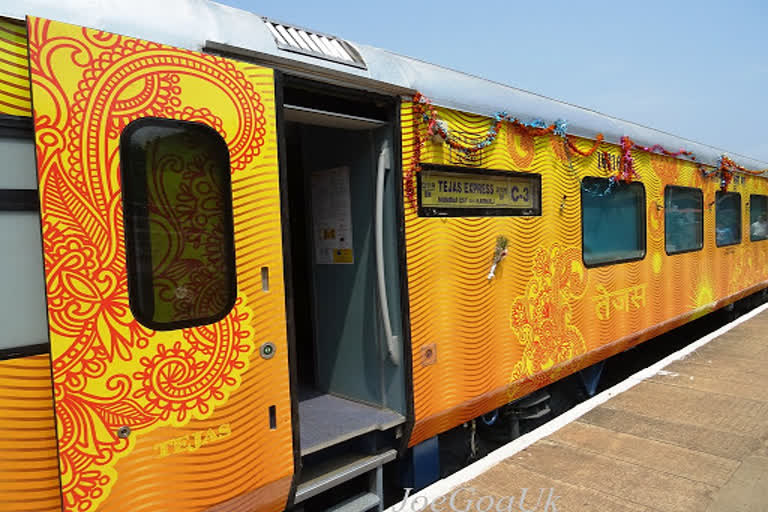New Delhi: In a first, the passengers of India's first privately-operated Tejas Express train on the Lucknow-New Delhi route will be compensated by the Indian Rail Catering and Tourism Corporation (IRCTC) if the train gets delayed.
"The IRCTC will pay Rs 100 to each passenger if the train gets delayed by one hour and Rs 250 in the case of two-hour-plus delays," a senior IRCTC official told IANS on Tuesday.
To collect the compensation, the passenger will have to provide details of travel, hours of delay with their PNR number and bank account. The insurance company would transfer the compensation amount directly into the passengers' bank accounts, he said.
Besides the compensation, the passengers will get Rs 25 lakh insurance cover, which will include Rs 1 lakh insurance against theft or robbery during the travel.
In countries like Japan and cities like Paris, a delay certificate is issued to passengers by railway companies as proof that a train arrived at a station later than stated in the company's timetable. It can also be shown in offices and schools for late admission in examinations.
In the United Kingdom, rail passengers are entitled to get automatic compensation for delayed journeys.
The Lucknow-New Delhi Tejas Express is scheduled to be flagged off by UP Chief Minister Yogi Adityanath in Lucknow on October 4. The train will run six-day a week, except Tuesdays, and the fare for the Lucknow-New Delhi trip will be Rs 1,125 for AC chair car and Rs 2,310 for executive chair car.
For the New Delhi-Lucknow trip, the ticket is priced at Rs 1,280 for AC chair car and Rs 2,450 for executive chair car. The train will depart from New Delhi at 3.35 p.m. and reach Lucknow at 10.05 p.m. It will leave Lucknow at 6.10 a.m. and reach New Delhi at 12.25 p.m.
The train will have one 56-seater executive class AC chair car and nine 78-seater AC chair cars. Five seats will be reserved for foreign tourists in each executive and AC chair cars.
The IRCTC will also extend taxi hiring and hotel bookings facilities to passengers on demand.
The train will operate on a dynamic fare scheme and no concessions, privileges or duty passes will be allowed. Children above 5 years will be charged full fare.
Even there will be no facility of 'tatkal' ticket in the Tejas Express.
Read more: RCEP trade ministers to meet in Bangkok on Oct 10-12



